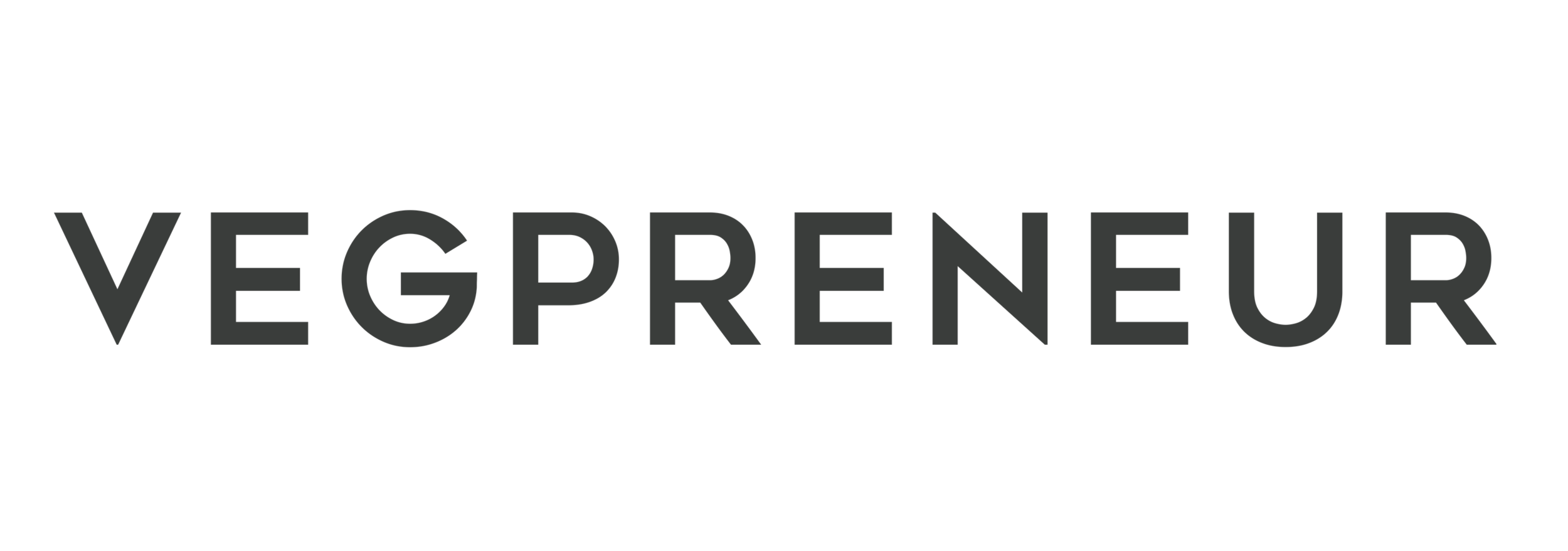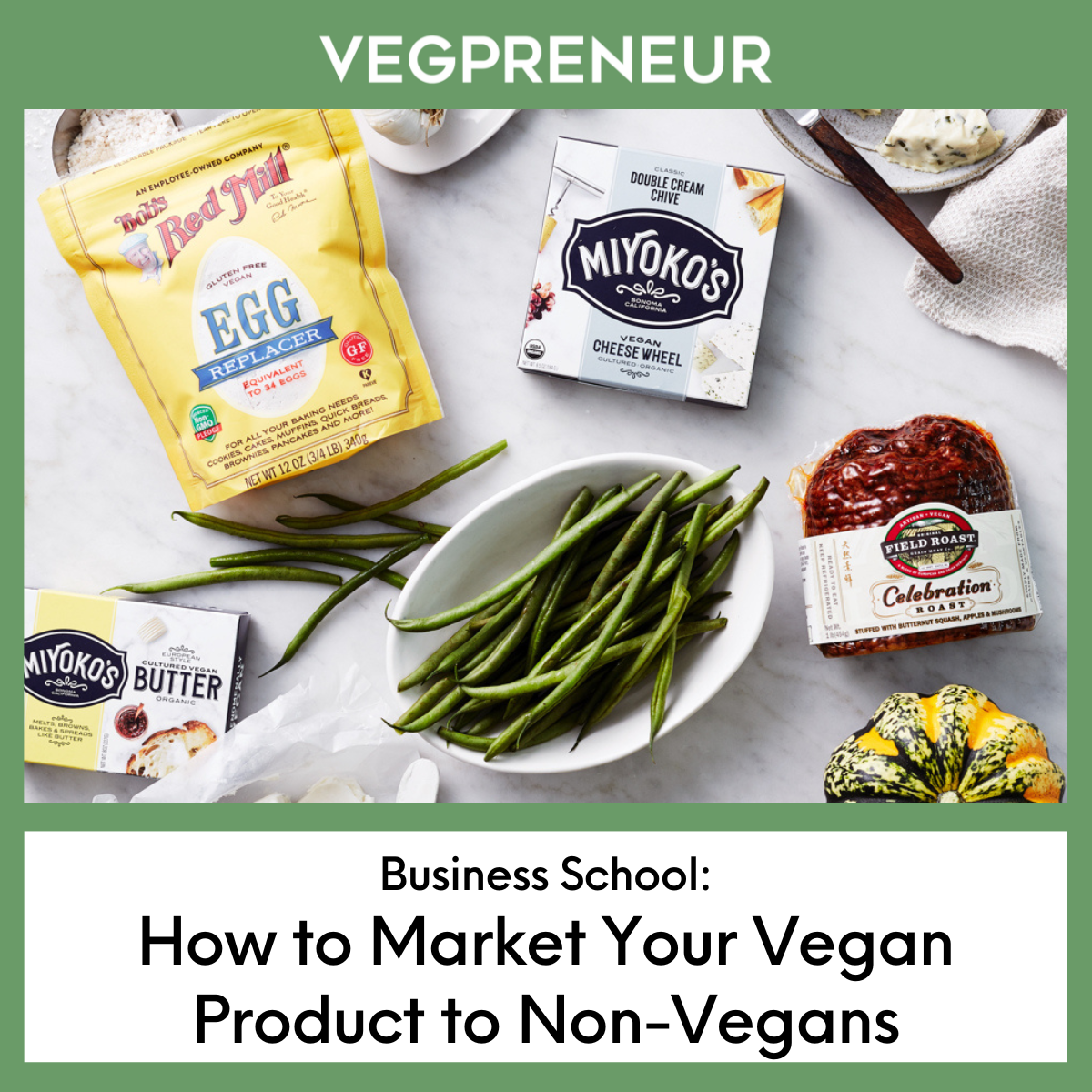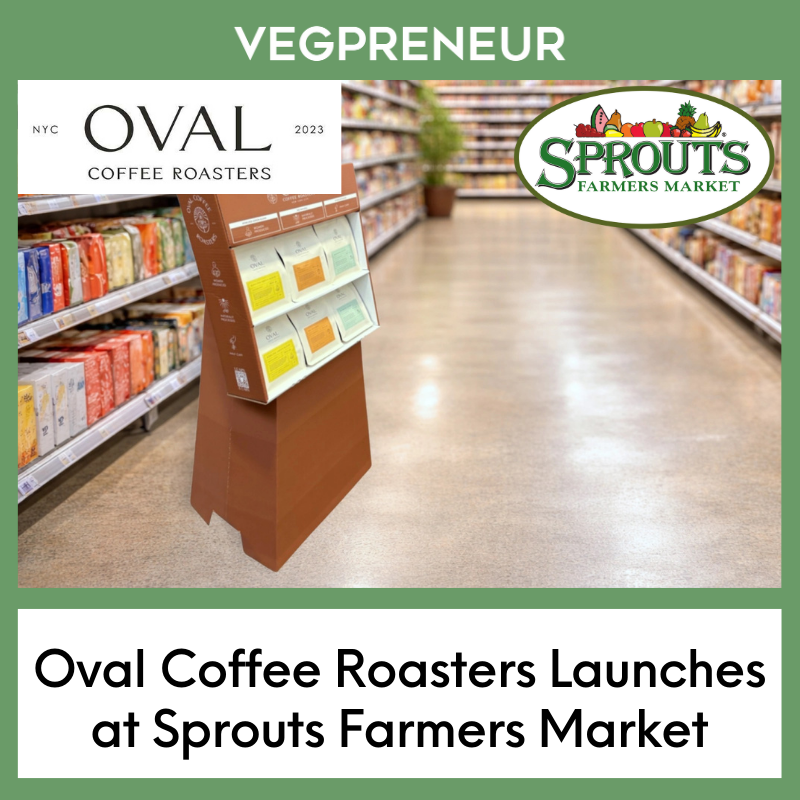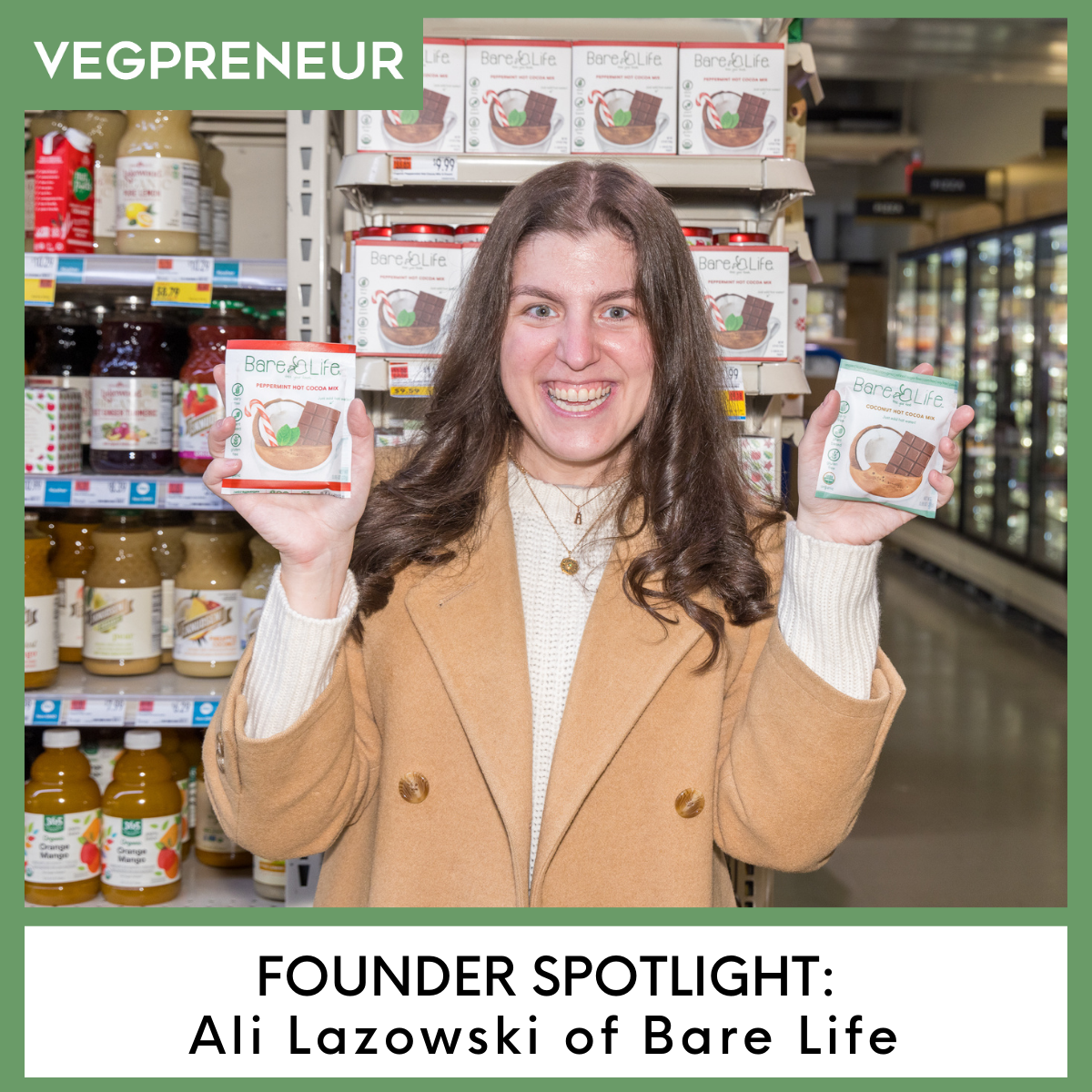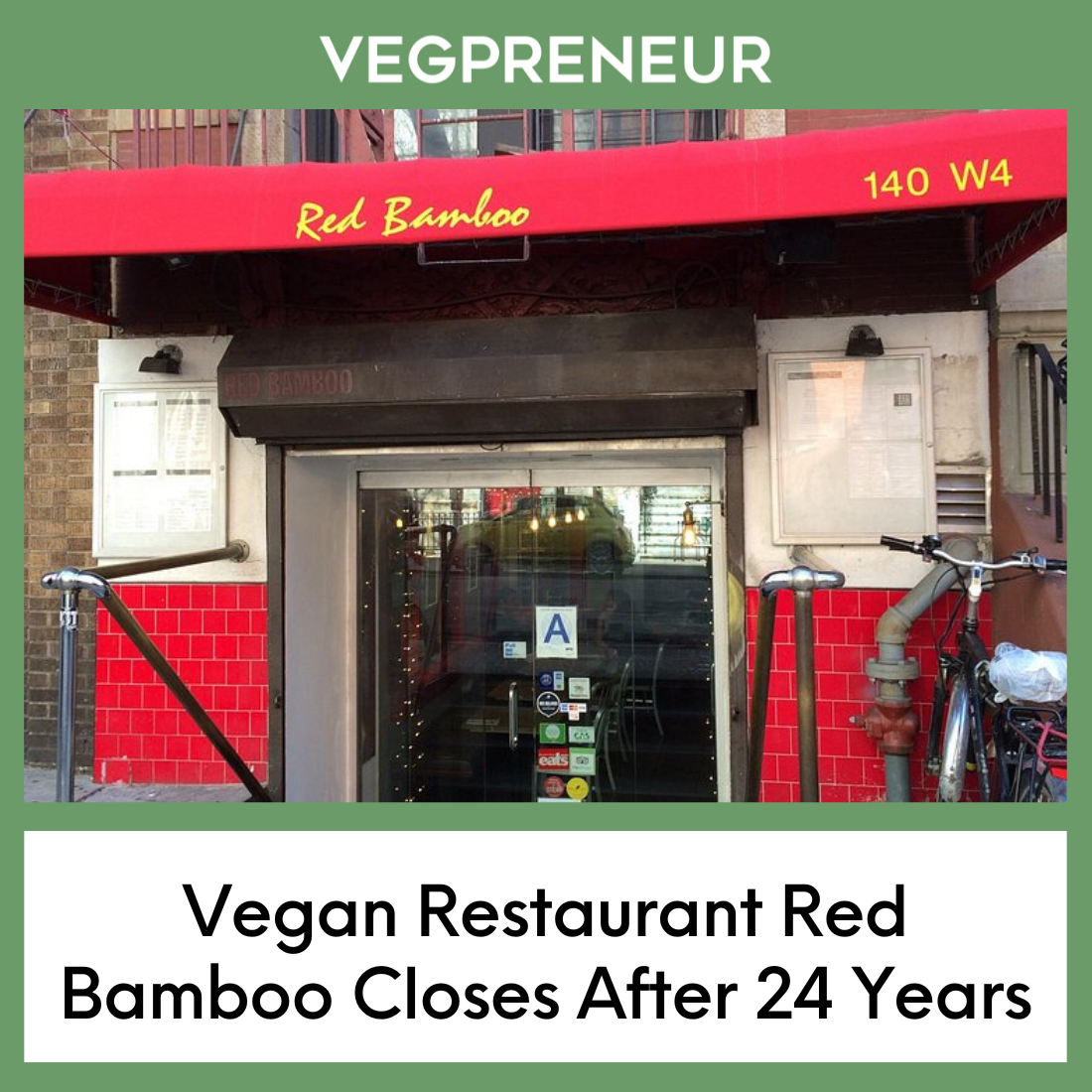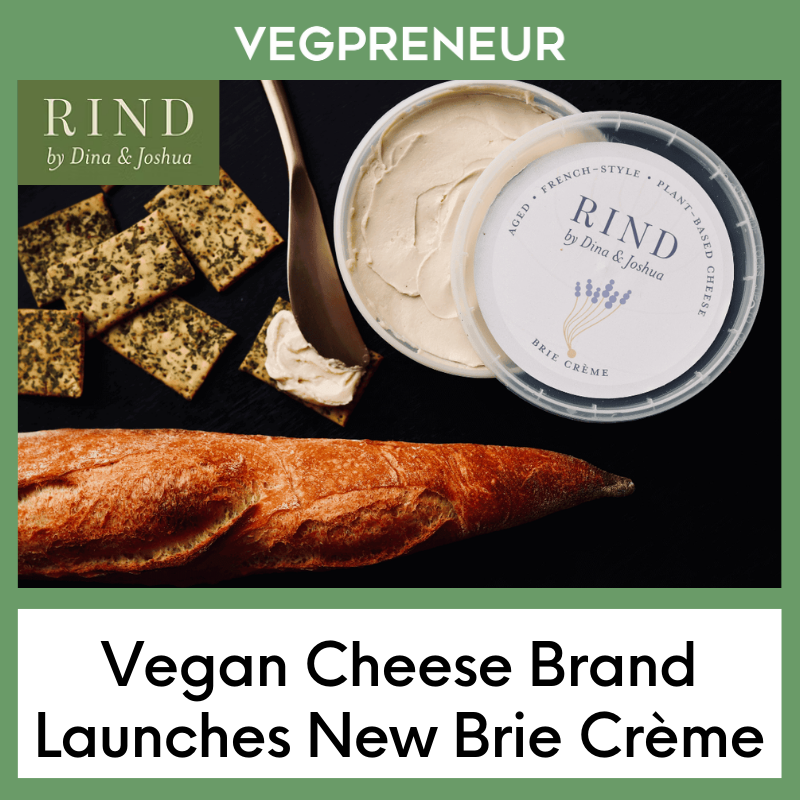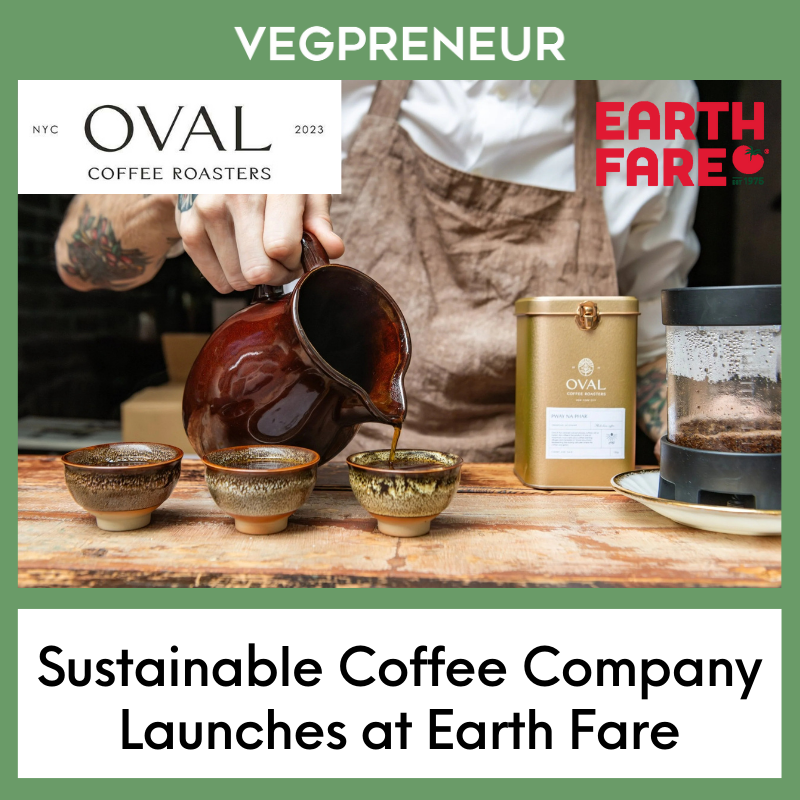How to Market Your Vegan Product to Non-Vegans
Written by Kandice Vincent
Kandice is the founder and lead strategist at The Conscious Content Initiative, a vegan SEO content agency and the North American correspondent for Vegconomist
Only 10% of consumers who purchase plant-based meat or dairy products are actually vegan, according to the Good Food Institute’s most recent Plant-Based State of the Industry Report. In fact, 90% of Impossible Foods customers are meat eaters! The majority of people purchasing and consuming plant-based meat alternatives are not vegan or vegetarian but rather omnivorous or flexitarian consumers seeking to reduce their intake of animal-based meats. If your marketing efforts are directed strictly towards vegans, then you’re missing an opportunity to reach a huge audience of vegetarians, flexitarians, and plant-based eaters Promoting an “all-or-nothing” vegan lifestyle will more likely deter potential consumers. Instead, it’s essential to make your product accessible to everyone, knowing that your brand will have an even greater impact as a result.
But how do you know which non-vegans are open to purchasing your vegan product, and how can you target them?
Social media content and strategic ad targeting
Some of your primary forms of marketing will be through paid ads (Facebook, Google, etc.) and social media. Regardless of which channels you’re using, there are some strategic ways to craft your content so that it appeals to a non-vegan audience who might align with your brand.
Here are four different angles that you can take based on your specific vegan product or service:
1. Focus on the environmental benefits
There are many people who are passionate about the environment but may not necessarily be vegan or even vegetarian. Those who are committed to preserving and protecting our planet will likely jump at the opportunity to choose products that support the cause. When creating content for your social media channels and paid ads, focus on the environmental benefits of choosing your vegan product, such as:
Conservation of freshwater (cows drink a lot of water!)
Reduction of air and water pollution (CO2, methane, nitrous oxide)
Reduce energy consumption
Improved soil quality
Fight global warming
Reduce destruction of wildlife habitats
2. Focus on the health/nutritional benefits
Many non-vegans are open to opting for a vegan product to benefit their health or offer extra nutrition. Instead of focusing on the fact that your brand is vegan, you can target the health-conscious community by creating content around the nutritional benefits of choosing your product. Vegan products are often low in saturated fats and cholesterol and high in nutrients. Center on the health perks that choosing your product has over choosing a non-vegan alternative. Some angles you could take include:
High in fiber
Low in saturated fat/cholesterol
Boosts your metabolism
Supports a healthy microbiome
Lowers risk of cardiovascular disease
High vitamin C for healthy skin and cell protection
3. Focus on the innovation/taste
One of the biggest barriers to the acceptance of vegan products is consumer concern about the taste and texture of alternatives. Non-vegans may be hesitant to swap their favorite foods for anything that doesn’t provide the sensory experience of traditional options. But with innovations in plant-based fats, proteins, and fermentation, vegan companies are creating delicious options that both meet and surpass that of their non-vegan counterparts.
Focusing on the sensory experience, including the taste, texture, and innovative aspects of products, is a great way to pique the interest of those driven by a desire for tasty and satiating foods. Many non-vegan consumers are interested in reducing meat consumption as long as they don’t need to compromise on flavor.
Some ways you could position your brand include:
Use mouthwatering descriptions and visuals that emphasize the food's deliciousness. Don't hesitate to use words like "juicy," "savory," or "satisfying."
Use video demonstrations to showcase the sizzle of a vegan burger on a grill or the gooey pull of melted vegan cheese.
Showcase people eating and enjoying the taste of the product.
Promote the use of unique preparation methods.
Share recipes using your product.
4. Focus on the ethical/animal rights benefits
The best way to contribute to the fight against animal cruelty and needless slaughter is by adopting a vegan diet. Not everyone who supports animal rights is vegan, but they are very likely to purchase your vegan product if you position yourself strategically.
Avoid being too graphic with your content, or you could end up deterring potential clients, even in the animal rights crowd. You don’t want consumers to think of slaughter and torture when they think of your product. Instead, focus on the ethical benefits of choosing your product in direct relation to animal rights, leaving a positive image in their minds. For example, you could include stats such as how switching to your product can help save animal lives or facts about animal intelligence coupled with cute images.
Identify non-vegan channels and causes that align with vegan values
Just because a cause isn’t specifically vegan doesn’t mean that those who support it aren’t open to vegan products. Similar to the strategic marketing tips above, focus on collaborating with causes that center around aligned communities.
For example, the animal rights organization PETA is always happy to share content about vegan brands, such as this roundup of their favorite vegan meal replacements. Organizations and channels that focus on animal rights will attract people interested in vegan products.
Another channel that is worth exploring is the fitness, health, and weight loss niche. Publications like Very Well Fit center around fitness and weight loss and publish content like this article on the best vegan delivery services. A vegan diet can help people on their weight loss or fitness journeys, so it’s worth aligning with these types of channels and causes to market your vegan brand.
Other causes to target could include environmental organizations, such as having your brand certified by The Rainforest Alliance and listed on their website. Offering to do guest posts on blogs or asking to be featured in product roundups is a great way to market your product to organizations’ already established followings.
Additional marketing tips for your vegan brand
It’s also worth reaching out to non-vegan influencers that operate in the niches touched on above: environmental sustainability, animal rights, fitness, and nutrition. Their audiences may not be vegan but will likely be open to trying your vegan product if recommended by someone whose opinion they value.
Influencers who often post recipes may be open to including your product in their next meal, or a weightlifter would be up for the challenge of going vegan for a week and posting about it on their channel. Leveraging the audiences of non-vegan influencers will enable you to connect with more non-vegans and encourage them to try out your product.
The importance of making your vegan product accessible to non-vegans
The success of marketing vegan products to non-vegans hinges on accessibility and inclusivity. Crafting marketing strategies that transcend the boundaries of strict veganism opens avenues to reach a wider audience, including vegetarians, flexitarians, environmentally-conscious consumers, and meat-eaters simply looking to explore what’s available.
By highlighting diverse angles such as environmental sustainability, health benefits, taste innovation, and ethical considerations, vegan brands can appeal to a spectrum of consumer motivations. Leveraging social media content, strategic ad targeting, and collaborations with aligned causes and influencers amplify visibility and fosters resonance with non-vegan audiences.
Moreover, recognizing the importance of aligning with non-vegan influencers and tapping into niches like environmental sustainability, fitness, and nutrition broadens the reach and impact of vegan brands. Through these concerted efforts, vegan products can seamlessly integrate into the lifestyles and preferences of non-vegan consumers, contributing to a more sustainable, ethical, and inclusive marketplace. Ultimately, the journey towards mainstream acceptance and adoption of vegan products is paved with accessibility, innovation, and strategic engagement with diverse consumer demographics.
Visit The Conscious Content Initiative for further insights into marketing tailored to vegan enterprises or for one-on-one support in creating and implementing your own content strategies.
Looking to take your business to the next level?
Become a VEGPRENEUR member today to access industry-leading events, mentors, resources, and a global community of innovators!
